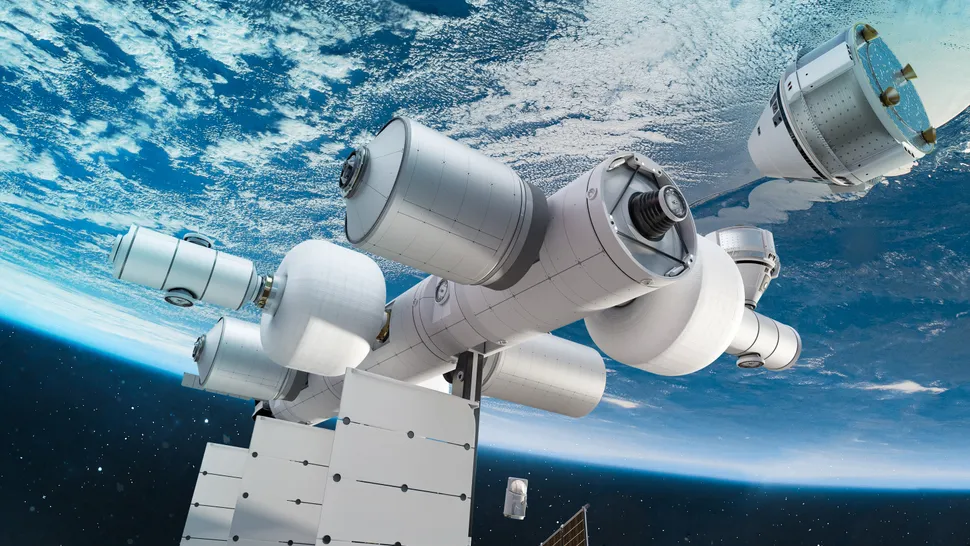The company founded by billionaire Jeff Bezos has joined the Orbital Reef commercial space station project to provide supply-chain logistics and Amazon Web Services for the private orbital outpost, which is slated to launch by the late 2020s. The Orbital Reef project is led by Blue Origin (another company founded by Bezos) and Sierra Space, and is a partnership with Boeing, Redwire Space, Genesis Engineering and Arizona State University.
Amazon's role in Orbital Reef,
which the company announced Tuesday (April 5) at the 37th National Space
Symposium here, includes overseeing logistics using its Distribution and
Fulfillment Solutions arm. And Amazon Web Services will offer networking, cloud
computing and communications solutions for the station's fight operations,
development and design teams.
"We are excited to collaborate with the Orbital Reef team to reimagine logistics for space," Brett McMillen, director of strategic partners for Amazon Distribution and Fulfillment Solutions, said in a statement(opens in new tab). "Amazon looks forward to sharing our expertise in logistics and end-to-end supply chain infrastructure to help develop reliable infrastructure that ensures humans have the resources they need to explore, experiment and sustain
Announced in October 2021,
the Orbital Reef commercial space station is a collaborative project
by Blue Origin, Sierra Space, Boeing and others (including, now, Amazon) to
develop a private space station that can be used for a wide variety of
commercial applications. Among those potential uses are commercial research and
manufacturing, space tourism and media and entertainment projects, its backers have
said.
The initial Orbital Reef design
calls for a baseline configuration that will offer 29,311 cubic feet (830 cubic
meters) of pressurized volume and be able to support up to 10 people at a
time.
Blue Origin will contribute
large-diameter modules and use its New Glenn heavy-lift rocket to
launch components into orbit. Boeing will oversee Orbital Reef operations and
maintenance, provide some science modules and use its Starliner spacecraft
to ferry astronauts to and from the station. Boeing already has a NASA contract
to fly astronauts to the International Space Station (ISS) with Starliner, too.
Sierra Space will build expandable
Large Integrated Flexible Environment (LIFE) modules to serve as living
quarters for astronaut crews. Its Dream Chaser space plane (which NASA has
tapped for ISS cargo delivery flights) may also fly cargo and crews to the
Orbital Reef.
Meanwhile, Redwire Space will
develop solar arrays for the commercial space station while Genesis Engineering
Solutions will build a single-person spacecraft for personal "spacewalks"
outside. Arizona State University will lead a 14-university consortium to
provide research advice and outreach.
The initial Orbital Reef station
is envisioned to include a core module, LIFE module, science module, Genesis
spacecraft and power system, Blue Origin has said.
"Orbital Reef is applying
proven approaches to enable a robust business ecosystem in low Earth
orbit," said Brent Sherwood, Blue Origin's senior vice president of
advanced development programs, in a statement, in which he hailed new partners
Amazon and AWS. "We're working with the world's best to reimagine
logistics for a commercial mixed-used space business park."

Comments
Post a Comment